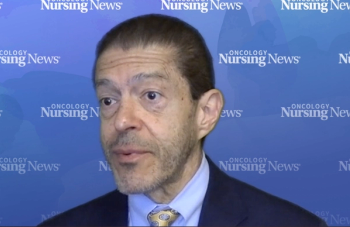
Care teams should maintain frequent communication with patients with chronic myeloid leukemia to ensure best outcomes, even between appointments.

Care teams should maintain frequent communication with patients with chronic myeloid leukemia to ensure best outcomes, even between appointments.
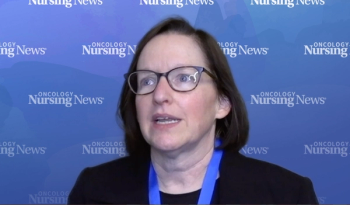
The health care team should provide an open forum for patients with chronic myeloid leukemia to discuss how adverse events from treatment affect daily function.
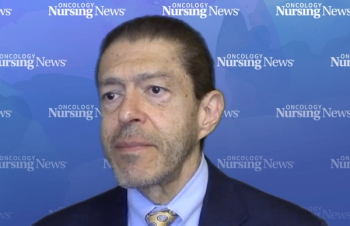
Patients who recently received a chronic myeloid leukemia diagnosis can benefit from initial discussions about treatment, side effects, and study results.
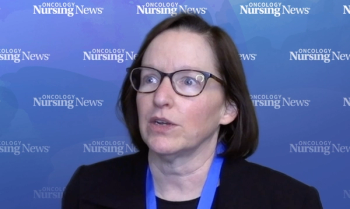
Resources are available to help patients through a chronic myeloid leukemia diagnosis and treatment.

Patients with newly diagnosed, high-risk acute promyelocytic leukemia treated with a combination strategy of ATO plus ATRA and idarubicin experienced improvements in event-free survival.
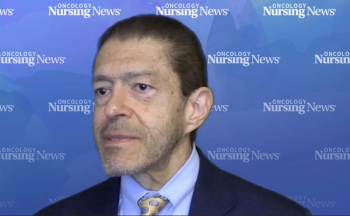
As most adverse effects of chronic myeloid leukemia treatment are manageable, patients with the disease may be able to continue their normal lifestyle while receiving therapy.

The FDA approved blinatumomab for patients 1 month or older with CD19-positive, Philadelphia chromosome–negative, B-cell precursor acute lymphoblastic leukemia.
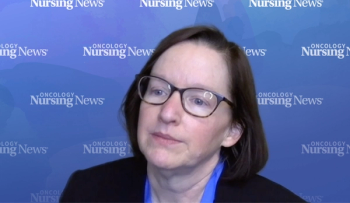
Patient-provider conversations are vital to promote the best care for chronic myeloid leukemia, a patient advocate said.

Asciminib led to a superior 48-week major molecular response rate compared with investigator-selected tyrosine kinase inhibitors for Ph-positive chronic phase chronic myeloid leukemia.

Uproleselan plus chemotherapy missed the overall survival end point in the phase 3 trial assessing the combination in patients with relapsed/refractory acute myeloid leukemia.

Second-line venetoclax may lead to monthly cost savings vs second-line BTK inhibitor for patients with chronic lymphocytic leukemia or small lymphocytic lymphoma.

Recent data from a phase 3b trial support venetoclax as a CLL treatment option for those with or without B-cell receptor–associated kinase inhibitor treatment.

Accelerated approval was granted by the FDA to ponatinib plus chemo for adult patients with newly diagnosed Philadelphia chromosome-positive acute lymphoblastic leukemia.

The antibody-drug conjugate inotuzumab ozogamicin was approved by the FDA for the treatment of patients aged 1 year and older with relapsed or refractory CD22-positive B-cell precursor acute lymphoblastic leukemia.

An orphan drug designation has been granted by the FDA to ocifisertib as a potential treatment option in acute myeloid leukemia.
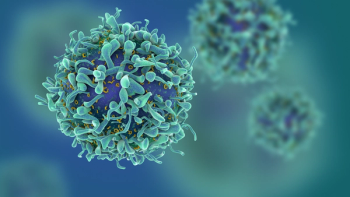
It may be feasible to use brexucabtagene autoleucel for the treatment of patients with relapsed/refractory B-cell acute lymphoblastic leukemia with central nervous system involvement.
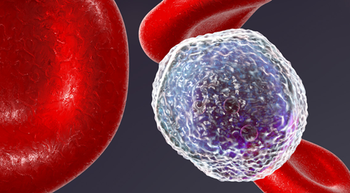
A fast track designation has been granted by the FDA to the novel BTK degrader, NX-5948, for adults with relapsed or refractory chronic lymphocytic leukemia or small lymphocytic lymphoma who were treated with at least two lines of therapy, including a BTK inhibitor and a BCL2 inhibitor.

Treatment with asciminib for newly diagnosed, Philadelphia chromosome-positive chronic myeloid leukemia in chronic phase induced statistically significant and clinically meaningful major molecular response benefits compared with standard-of-care TKIs.
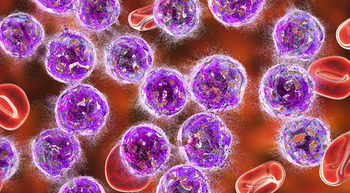
SLS009 has been granted fast track status from the FDA to be considered as a potential therapeutic option for relapsed or refractory acute myeloid leukemia.

The major molecular response rate for asciminib at week 156 continued to be higher than with bosutinib.

Most biomarkers in subgroups of patients with treatment-naive chronic lymphocytic leukemia or small lymphocytic lymphoma without del(17p) derived benefit from zanubrutinib vs bendamustine plus rituximab.

At a median 39 months of follow-up, zanubrutinib reduced the risk of disease progression by 32% compared with ibrutinib in patients with relapsed/refractory chronic lymphocytic leukemia and small lymphocytic lymphoma.

Acalabrutinib, whether as monotherapy or as part of a combination, demonstrated superior progression-free survival outcomes compared to obinutuzumab and chlorambucil.

A new targeted therapy showed promising response rates in pediatric and adult patients with relapsed/refractory KMT2A rearranged acute leukemia.

The use of pirtobrutinib following covalent Bruton tyrosine kinase inhibitor therapy may be an important sequencing approach in chronic lymphocytic leukemia/small lymphocytic lymphoma, according to recent research.